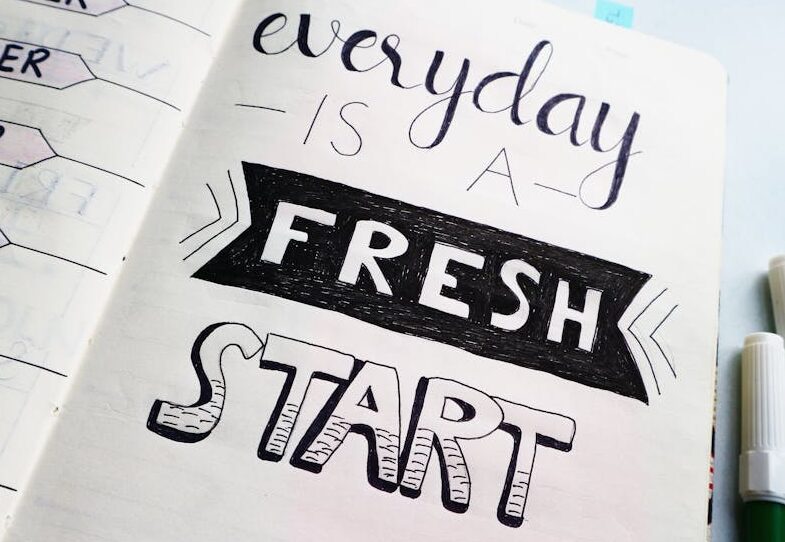In today’s fast-paced world, personal growth isn’t just a luxury—it’s a necessity. Whether you’re looking to advance in your career, improve your relationships, or simply become the best version of yourself, understanding and embracing personal growth is key to creating lasting positive change in your life.
What is Personal Growth?
At its core, personal growth is the continuous process of self-improvement across all aspects of life. It’s not just about career advancement or skill development—though these are important components. True personal growth encompasses:
- Emotional Growth: Developing better emotional intelligence and coping mechanisms
- Mental Growth: Expanding your knowledge, shifting mindsets, and developing new ways of thinking
- Physical Growth: Taking care of your body and maintaining overall wellness
- Spiritual Growth: Connecting with your values and finding deeper meaning in life
Think of personal growth as a holistic journey that touches every aspect of who you are and who you want to become.
The Impact of Personal Growth: Why It Matters
Personal growth isn’t just about becoming “better”—it’s about creating a life that aligns with your values, passions, and purpose. When you commit to personal growth, you’ll experience numerous benefits:
1. Increased Confidence and Self-Esteem
- Better understanding of your worth and capabilities
- Greater trust in your decision-making abilities
2. Enhanced Resilience
- Improved ability to handle challenges and setbacks
- Better stress management skills
3. Clearer Life Direction
- Better understanding of your goals and purpose
- Increased motivation and focus
4. Stronger Relationships
- Improved communication skills
- Greater empathy and emotional intelligence
The Mindset Factor: Your Growth Foundation
Your mindset plays a crucial role in personal growth. The difference between a fixed mindset (“I can’t change”) and a growth mindset (“I can improve through effort”) can dramatically impact your success.
Consider these mindset shifts:
- Instead of “I can’t do this,” think “I can’t do this yet”
- Replace “This is too hard” with “This is challenging, but I’m learning”
- Switch “I failed” to “I learned what doesn’t work”
Starting Your Personal Growth Journey: A Practical Guide
Ready to begin? Here’s how to start your personal growth journey:
- Self-Reflection
Take time to assess where you are and where you want to be. Consider these reflection prompts:
Current State Assessment:
- What are my strengths and weaknesses?
- Which areas of my life bring me the most satisfaction?
- Where do I feel stuck or unfulfilled?
- What patterns or behaviors hold me back?
Future Vision:
- What does my ideal life look like in 1, 5, and 10 years?
- What skills do I need to develop to reach my goals?
- What relationships need nurturing or boundaries?
- What values do I want to embody more fully?
Action Planning:
- What immediate changes would improve my daily life?
- Which habits no longer serve me?
- What new experiences would challenge my growth?
- Who can support me in my journey?
Try dedicating 15-20 minutes each day to reflection through journaling, meditation, or quiet contemplation.
- Goal Setting
Create SMART goals that align with your values:
Specific: Clear, detailed objectives rather than vague intentions
- Instead of “get fit,” try “exercise for 30 minutes, 3 times per week”
- Instead of “read more,” try “read one personal development book monthly”
Measurable: Quantifiable metrics to track progress
- Track numbers, percentages, or frequencies
- Use apps, journals, or spreadsheets to monitor advancement
Achievable: Realistic goals within your current capabilities
- Break larger goals into smaller, manageable steps
- Consider your available resources and time constraints
Relevant: Goals that align with your values and larger life vision
- Ensure each goal contributes to your overall growth
- Confirm the goal matters to you, not just others’ expectations
Time-bound: Clear deadlines and milestones
- Set specific target dates for completion
- Create checkpoints to review and adjust as needed
- Continuous Learning
Commit to ongoing education through additional channels:
Books:
- “Atomic Habits” by James Clear
- “Mindset” by Carol Dweck
- “The 7 Habits of Highly Effective People” by Stephen Covey
- “Think and Grow Rich” by Napoleon Hill
- “Deep Work” by Cal Newport
Podcasts:
- “The Tim Ferriss Show”
- “On Purpose with Jay Shetty”
- “Optimal Living Daily”
- “The School of Greatness with Lewis Howes”
- “Hidden Brain”
- Habit Formation
Transform your goals into daily actions:
Morning Routine Examples:
- 5-minute meditation
- Gratitude journaling
- Exercise or stretching
- Reading or learning
- Goal review and daily planning
Evening Routine Ideas:
- Reflection on daily achievements
- Planning for tomorrow
- Reading or journaling
- Digital sunset (no screens 1 hour before bed)
- Relaxation exercises
Habit Building Strategies:
- Start with tiny habits (1-2 minutes)
- Stack new habits onto existing ones
- Create environmental triggers
- Remove obstacles to good habits
- Add friction to bad habits
Progress Tracking:
- Use habit tracking apps (Habitica, Strides, Loop)
- Maintain a habit journal
- Create accountability partnerships
- Set up regular progress reviews
- Celebrate small wins consistently
When Habits Slip:
- Practice self-compassion
- Analyze what went wrong
- Adjust the habit size if needed
- Recommit without guilt
- Focus on consistency over perfection
Remember to:
- Start with one habit at a time
- Give each new habit 30-66 days to form
- Adjust strategies based on what works for you
- Track progress in a way that motivates you
- Build in flexibility for life changes
Choose the strategies that resonate most with you and adapt them to fit your unique situation and goals.
Essential Tools for Your Growth Journey
To support your personal growth, consider incorporating these tools:
- Journaling: Record your thoughts, progress, and insights
- Meditation: Cultivate mindfulness and emotional awareness
- Progress Tracking Apps: Monitor your habits and achievements
- Affirmations: Reinforce positive mindset shifts
- Accountability Partners: Share your journey with someone who supports your growth
Remember: Growth is a Journey, Not a Destination
As you embark on your personal growth journey, keep these final thoughts in mind:
- Be patient with yourself
- Celebrate small wins
- Learn from setbacks
- Stay consistent with your efforts
- Focus on progress, not perfection
Your commitment to personal growth is an investment in yourself that will pay dividends throughout your life. Start small, stay consistent, and remember that every step forward, no matter how small, is progress.
Ready to begin? Take your first step today by choosing one area of focus and committing to a small, actionable step. Your future self will thank you for starting now.
What area of personal growth will you focus on first? Share your thoughts and goals in the comments below—let’s support each other on this journey of transformation!
*Remember: Personal growth is unique to each individual. Trust your journey, embrace the process, and keep moving forward, one step at a time.


